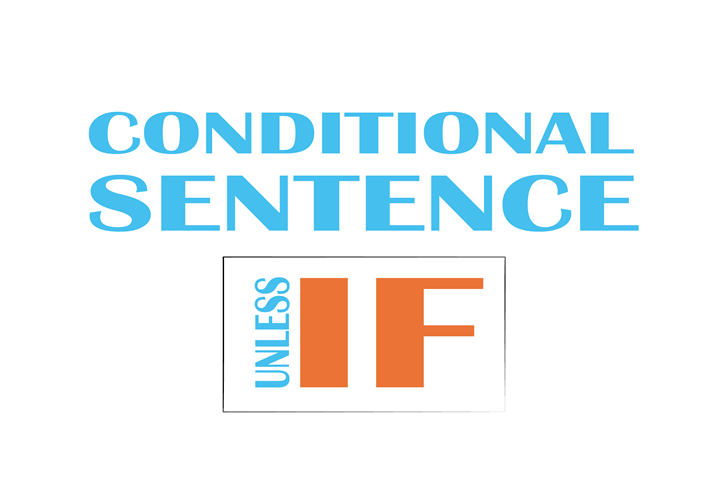Mastering conditional sentences in arabic is essential for expressing complex ideas, from setting basic rules to speculating about the impossible. Unlike English, where “if” is often one word, Arabic has several distinct particles—Types of “If” in Arabic—that dictate the probability and tense of the action.Mastering conditional sentences in arabic is essential for expressing complex ideas, from setting basic rules to speculating about the impossible. Unlike English, where “if” is often one word, Arabic has several distinct particles—Types of “If” in Arabic—that dictate the probability and tense of the action.
This guide will break down the grammar of Ithaa, Law, and In, allowing you to use the conditional sentences in arabic correctly in any context.
Conditional Sentences in Arabic: Particles and Probability
Conditional sentences in arabic consist of two parts: the condition (فِعْل الشَّرْط – fi‘l ash-sharṭ) and the result (جَوَاب الشَّرْط – jawāb ash-sharṭ). The choice of particle determines the relationship between these two parts.
| Particle | Transliteration | Meaning & Probability | Resulting Verb Mood |
|---|---|---|---|
| إِنْ | In | Real/Possible: Used for conditions that are possible or likely in the future. | Jussive Mood (مَجْزُوم (majzuˉm)) |
| إِذَا | Ithaa / Idhā | Likely/Habitual: Used for conditions that are expected or habitual. | Perfect or Present Indicative |
| لَوْ | Law | Hypothetical/Impossible: Used for conditions that are contrary to fact (unreal). | Perfect Tense (often preceded by ل (la) in the result) |
The Possible Condition: إِنْ (In)
The particle إِنْ (In) is used for conditions that may or may not happen. It is the most grammatically demanding particle because it places both the condition and the result verbs into The jussive mood.
Grammar Rule (The Jussive Mood – الجزم):
The jussive mood affects the verb ending by dropping the final short vowel (Damma, -u (−u)) or dropping the ن (n) for plural forms.
| Verb Type | Original Ending (Nominative) | Jussive Ending (After إن) | Example |
|---|---|---|---|
| Singular Verb | -ُ (−u) | ـْ (−sukuˉn) | إِنْ تَجْتَهِدْ تَنْجَحْ. (If you study, you succeed.) |
| Plural Verb | ـُونَ (−uˉna) | ـُوا (−uˉ) (drops the ن) | إِنْ تَكْتُبُوا تَتَعَلَّمُوا. (If you write, you will learn.) |
| Past Tense Usage | The Past Tense form remains unchanged but acts as the jussive. | إِنْ دَرَسْتَ نَجَحْتَ. (If you studied, you succeeded.) |
The Likely Condition: إِذَا (Ithaa)
The particle إِذَا (Ithaa) (often transliterated as Itha) implies a higher likelihood or certainty than إن. It is frequently used for general truths or expectations.
Grammar Rule (No Jussive):
In contrast to إن, إِذَا does not affect the mood of the verbs. Therefore, the result clause (the answer to the condition) usually follows naturally.
| Situation | Arabic Sentence | Transliteration | English Meaning |
|---|---|---|---|
| Habit/General Truth | إِذَا طَلَعَتِ الشَّمْسُ، نَذْهَبُ إِلَى الْعَمَلِ. | Idhā ṭala‘at ash-shamsu, nadhhabu ilā al-‘amal. | If the sun rises (when the sun rises), we go to work. |
| Future Expectation | إِذَا قَرَأْتَ، فَسَوْفَ تَعْرِفُ. | Idhā qara’ta, fa-sawfa ta‘rif. | If you read, then you will know. |
When to Use ف (fa) in the Result Clause
Crucially, the result clause of a conditional sentence starting with إن or إذا must be preceded by the particle ف (fa – then) in several cases.
| Condition for Using ف (fa) | Example Sentence | English Translation |
|---|---|---|
| Result is an Imperative | إِذَا سَمِعْتَ النِّدَاءَ، فَـاذْهَبْ. | If you hear the call, then go. |
| Result is a Future Tense | إِنْ رَأَيْتَهُ، فَـسَأُخْبِرُهُ. | If I see him, then I will tell him. |
| Result is a Nominal Sentence | إِنْ عَمِلْتَ خَيْراً، فَـأَنْتَ سَعِيدٌ. | If you do good, then you are happy. |
The Unreal Condition: لَوْ (Law)
The particle لَوْ (Law) expresses a hypothetical, impossible, or unreal condition—something that did not happen in the past or is not true in the present. Consequently, it often implies regret.
Grammar Rule (Unreal Condition):
لَوْ is typically followed by two past tense verbs. Furthermore, the result clause is often preceded by ل (la).
| Situation | Arabic Sentence | Transliteration | English Meaning |
|---|---|---|---|
| Unreal Past | لَوْ دَرَسْتُ لَنَجَحْتُ. | Law darastu la-najaḥtu. | If I had studied, I would have succeeded. (Implies: I did not study, and I did not succeed.) |
| Unreal Present | لَوْ كَانَ مَالِي لَاشْتَرَيْتُ سَيَّارَةً. | Law kāna mālī la-shtaraytu sayyāratan. | If I had money, I would buy a car. (Implies: I don’t have money, so I won’t buy a car.) |
Summary of Conditional Sentences in Arabic
Mastering the Types of “If” in Arabic depends on recognizing the subtle differences in meaning and grammar.
| Particle | Meaning | Verb Mood/Tense | Result Clause Marker |
|---|---|---|---|
| إِنْ (In) | Possible/Likely | Jussive Mood on both verbs. | None (ف if the result is future or an order). |
| إِذَا (Ithaa) | Highly Likely/Habitual | Past or Present Indicative. | None (ف if the result is future or an order). |
| لَوْ (Law) | Hypothetical/Unreal | Past Tense on both verbs. | ل (la) – Used to stress the result. |
Ultimately, practice using these three particles, Ithaa, Law, and In, and you will greatly enhance your ability to construct sophisticated sentences in Arabic!
Conclusion
Mastering conditional sentences in arabic is a vital step toward practical fluency. Ultimately, knowing the Types of “If” in Arabic unlocks complex expression. To accelerate your progress and get targeted practice on these difficult grammatical forms, consider using Kaleela App, and your sentence construction will become naturally sophisticated!



